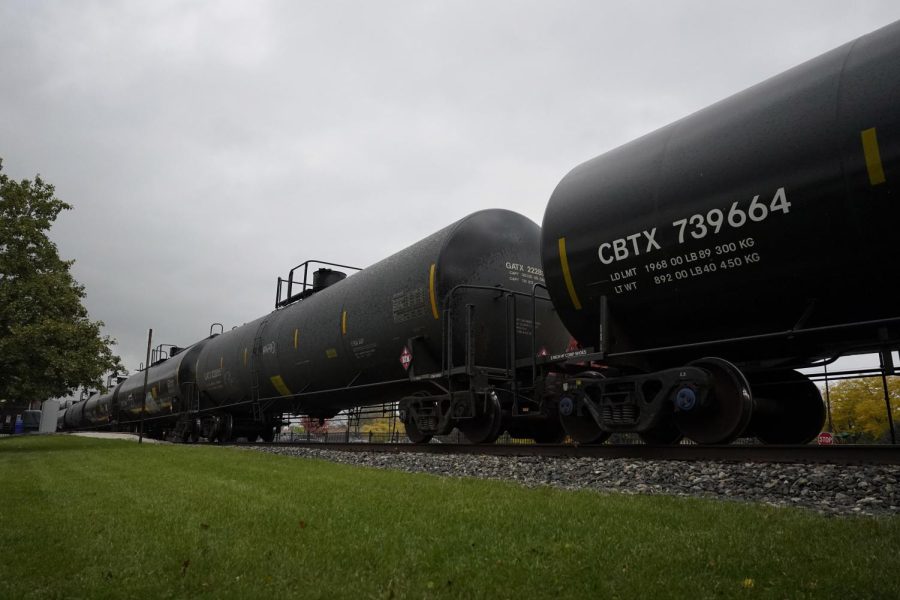Railroad union rejects deal, strike pending
Freight train is seen at a train station in Northbrook, Ill., Wednesday, Oct. 12, 2022. A fifth rail union has approved its deal with the freight railroads to secure 24% raises and $5,000 in bonuses and a sixth one is set to vote Thursday. But all 12 rail unions must ratify their contracts to prevent a strike.
Oct 21, 2022
As of Oct. 10, one railroad union rejected a deal with the railroad companies, bringing back discussions of a union strike among railroad workers. The original deal includes a 24% wage increase over a five-year period and an extra $11,000 in compensation once ratified along with time off for hospitalization and preventative medical care. The rejection is due to the union’s claim that the original deal did not take into account working conditions and sick days.
The previous deal included a 24% wage increase over a five-year period and an extra $11,000 in compensation once ratified. The deal, however, only included leave for medical appointments and hospital stays, essentially ignoring the need for sick leave. In addition to this, AP News reports the railroad has undergone many staff shortages in recent years and the working conditions on the rail are dangerous, but the railroad companies seem adamant that the working conditions on the rail are safe.
Mindy Peden, professor of Political Science at John Carroll, stated “A lot of times people think that unions are advocating only for wage increases, which clearly is not the issue that this union is most concerned about. Improved working conditions and sick days are valid things to push for, of course. The risk of being replaced because of speaking up about wages, working conditions, etc, is a real, serious, risk. Collective bargaining through negotiations with an employer can be effective, but support for workers and unions in the United States has historically not been as widespread as in many other countries.”
The Brotherhood of Maintenance of Way Employees Division (BMWED) was the only union to reject the deal; another four railroad unions agreed to the deal as it was. A strike would destroy the economy, losing a total of $2 billion a day, and the United States is already on the brink of recession. During the previous negotiations, the threat of a strike was imminent but it was made clear that “the group that represents the railroads in negotiations said they were disappointed the union rejected the agreement, but emphasized that no immediate threat of a strike exists.”
The agreements are the largest that the rail workers have seen in decades, but financial compensation is not the concern the union cites. BMWED is concerned about the conditions and paid sick leave of the workers, which would allow a better work-home life balance. The deal did not ease the anxieties about working conditions and personal health.
The BMWED states “the rejection of the tentative agreement results in a ‘status quo’ period where the BMWED will reengage bargaining with the Class I freight carriers,” which will extend until five days after Congress reconvenes on Nov. 14.













